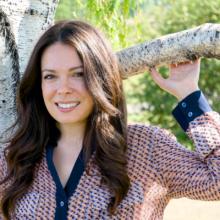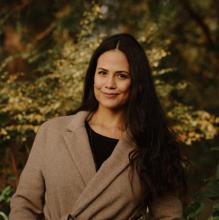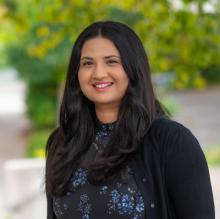Born and raised near a natural, indigenous protected forest in central Kenya, Gloria draws from her heritage and work experience in the African context to engage in community-driven research on indigenous knowledge systems and sustainable forest governance practices.
Research Description
My research aims to explore how people-forest relationships are forged around central Kenya's Aberdare Forest Reserve, and how indigenous knowledge systems of communities around the Reserve might contribute to healthy, sustainable people-forest relationships in light of Kenya's changing social, economic and political situations.
What does being a Public Scholar mean to you?
It means being committed conducting research that is community driven, community oriented and anchored on a social justice imperative.
In what ways do you think the PhD experience can be re-imagined with the Public Scholars Initiative?
I think we can consider many possibilities. Part of the required credits can be for example obtained by being attached with a certain community project and working on something together.
How do you envision connecting your PhD work with broader career possibilities?
I see my PhD work as a continuation of my career which has focused and will continue to focus on community driven conservation projects.
How does your research engage with the larger community and social partners?
My research seeks to elevate the community to the role of co-researcher. Working together with a common goal and with a deliberate effort to amplify the local ways of knowing.
Why did you decide to pursue a graduate degree?
I am deeply committed to achieving excellence, and part of my desire to pursue a Ph.D., and to reach the highest levels of influence in management and policy in this field is related to the belief that learning is a continuous process. Thus, I feel it is necessary to push the boundaries of my understanding of forest ecosystems, sustainable economies, and human-environmental interactions, and to make critical contributions to this significant endeavor.
Why did you choose to come to British Columbia and study at UBC?
I wanted to experience learning in an international environment in a PhD program that would give me an opportunity to expand my horizons on forest and environmental issues from a global perspective.
I feel it is necessary to push the boundaries of my understanding of forest ecosystems, sustainable economies, and human-environmental interactions.




